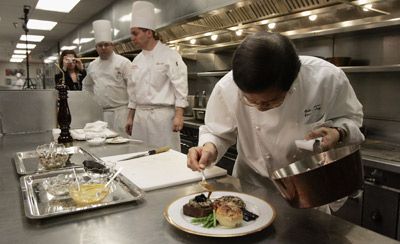We humans have clearly identified tastes that go great together. The combination of chocolate and peanut butter comes to mind, as does peanut butter and jelly. For many, steak and eggs is a winning combination. Or strawberries and cream. But anyone who has ever taken a gulp of orange juice immediately after brushing his or her teeth knows that the ensuing taste may be the worst a person can possibly experience.
While the minty flavor of toothpaste is pleasant, and orange juice has a nice, sweet citrus taste, the two combined form a new hybrid that resembles neither, and is universally considered disgusting. But why?
Advertisement
In actuality, scientists don't know for sure why orange juice and toothpaste go so poorly together. This is mostly due to the fact that scientists aren't entirely certain how taste works. Like smell, full understanding of this sense remains elusive. Still, we have a pretty good idea of what takes place in the process of taste, and based on current observation, researchers have come to a general consensus as to what creates the horrific O.J./toothpaste combo.
The tastes your mouth can perceive are divided into five general categories: sweet, salty, bitter, sour and umami (meaty tastes). While each is separate, they all work together to produce different flavors. Flavor is not the same as taste. In fact, taste is an aspect of flavor, along with temperature, consistency, smell and texture. Each of these factors has an effect on our perception of taste. For example, foods taste sweeter when they're warmer than they do when they're colder.
So what's at the root of the problem? Read on to find out about the chemical reaction scientists feel is responsible for the battle between orange juice and toothpaste.
Advertisement


